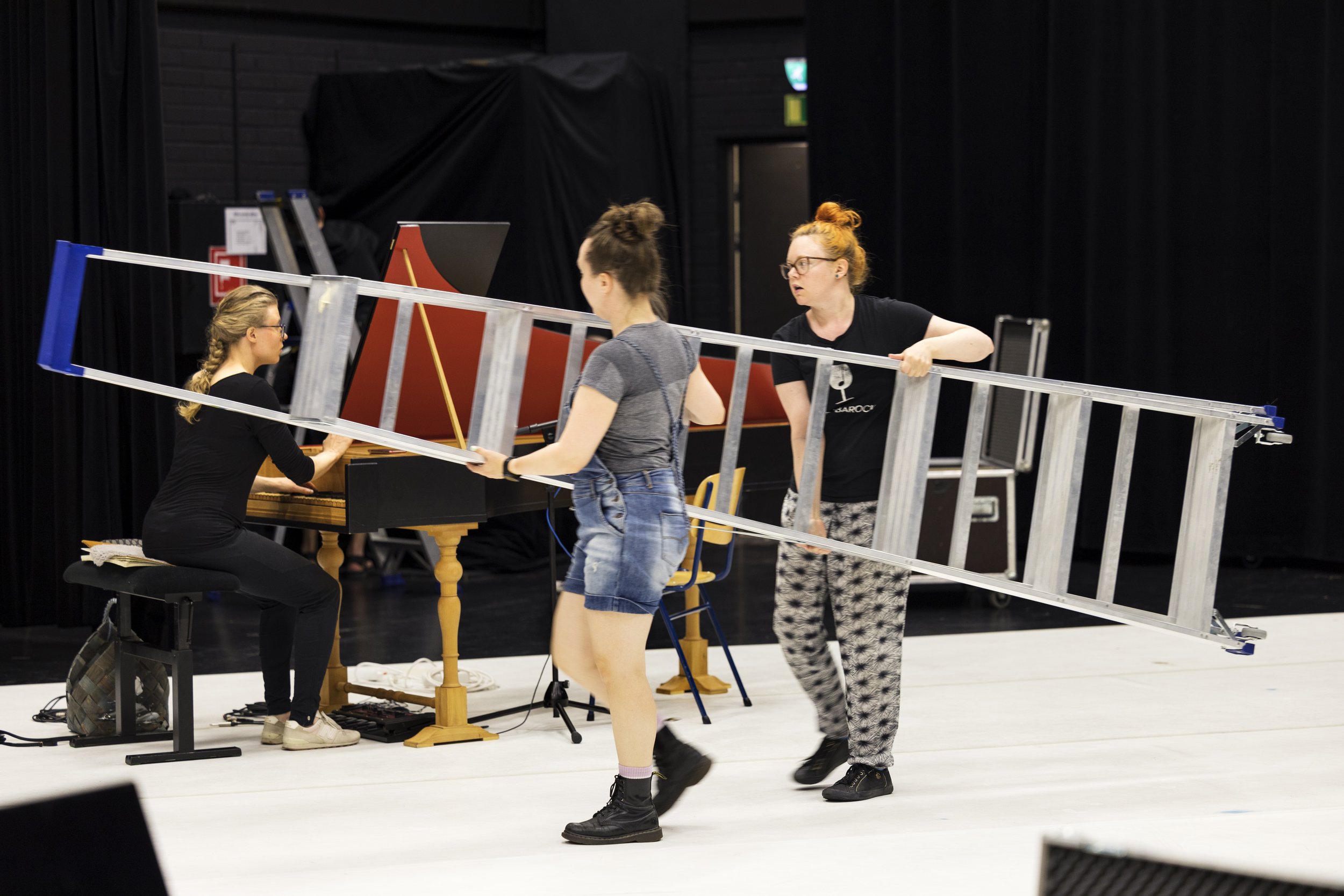



Conscience
This performance, examining the exceptional life and literary work of philosopher Simone Weil (1909-1943), uses old and new music and movement to reflect on man's place in the world. How do we recognise the whole, harmony, and our place in it? In what relationship do rights and obligations relate to each other? Can order bring security, and how can we recognise the real?
Aura Visala, performance, concept, text
Soili Huhtakallio, choreography, dramaturgy, lights, video material
Niilo Tarnanen, composition, mixing
Duration: 120 min
Premiere: 23.7.2022, BarokkiKuopio, FIN
Production: Aura Visala, BarokkiKuopio
Funding: Arts Promotion Centre, Music Promotion Foundation, Saari Manor Residency (Koneen Foundation), Niin ja Näin Publishing House
Thanks: Teo, Katri Antikainen, Eero Hämeenniemi, Kulttuuriareena 44's Ilmari, Jari, Tuula and Tuomas.
Photos of the performance day: Kari Kohvakka
My own feeling/conscience refers, on the one hand, to a person's physicality as the basis of consciousness and, on the other hand, to conscience as a moral guide. Creating the work has been long and periodical; Visala’s discovery of Simone Weil’s idea of the place of physical work at the centre of spiritual life provided a decisive, clarifying initial impetus for the working group’s work in the spring of 2020.
Simone Weil (1909–1943) was a Frenchwoman who grew up in a secular Jewish family, kept quiet about her mystical experiences and was an unbaptised Christian. As a philosopher, she was as much a learned writer as a fearless activist. Instead of penning her pen in a research chamber, she sought work on the assembly line of a car factory after her studies to understand these trials. She taught p’s. She taught philosophy in schools and volunteered in the Spanish Civil War. In addition to his own experiences, Weil drew on Plato's texts, the Bible, and the Bhagavad Gita to reflect on the precious existence of man, while living in a world ravaged by the Second World War and its aftermath.
In the last years of his life, Weil received a commission from the French government in exile to outline guidelines for the reconstruction of Europe after Nazi rule. L'Enracinement – translated by Kaisa Kukkola as Rooting (2007) – was published posthumously in 1949, after Weil died of pneumonia at only 34 in 1943.
Our current lifestyle minimises the need for physical labour: machines perform and facilitate both heavy and precision-demanding tasks in the everyday life of the average European. However, few people understand and think about the mammoth computing power of computers and the scale of consumption associated with their use.
One of Weil's key insights is the sense of scale provided by physical work: a person's perception of their relationship to other living things. In the work process, Visala has, among other things, considered whether we can relate the products of our imagination, such as computers, to the effort required to make them and the concrete consequences of production.
In the work, the history and present of music, the sensations of playing, singing and movement, and the player's playful relationship with the instrument aim to open up sincere reflections to the audience about the place of the musician in a material and yet always at the same time associative, image-filled world.